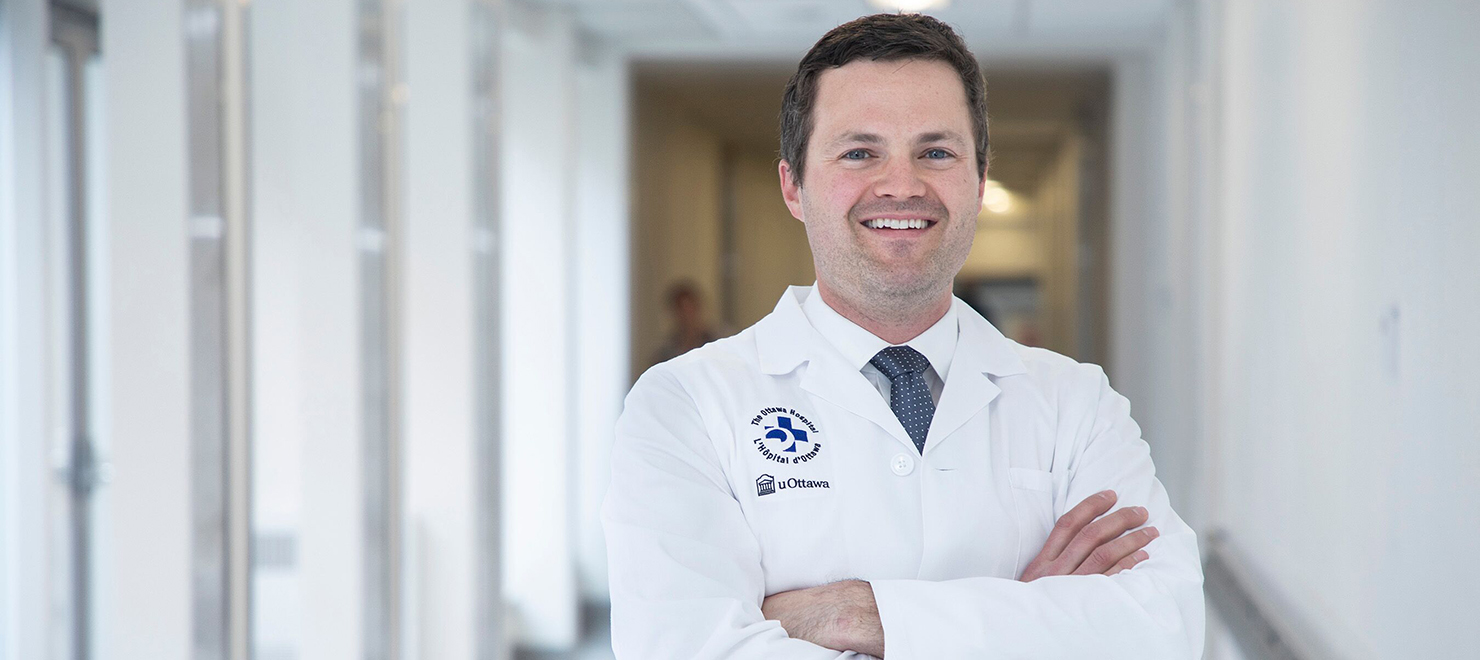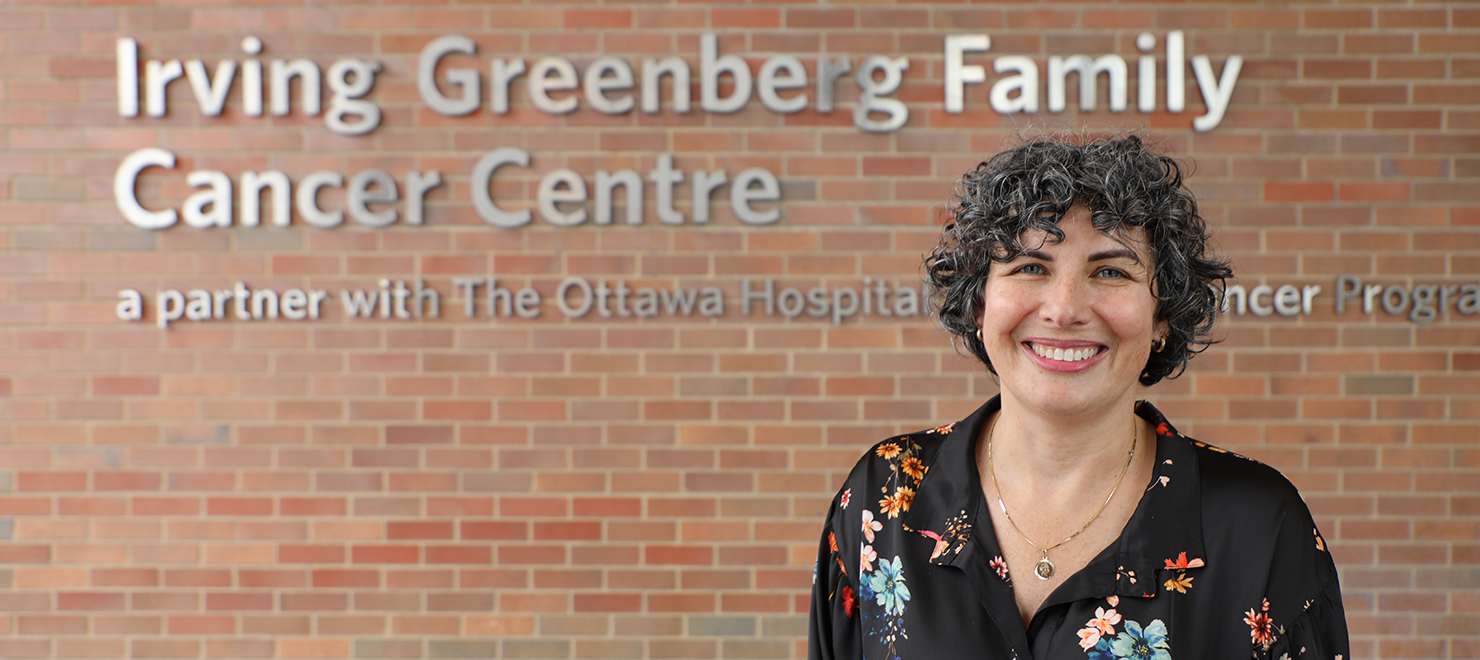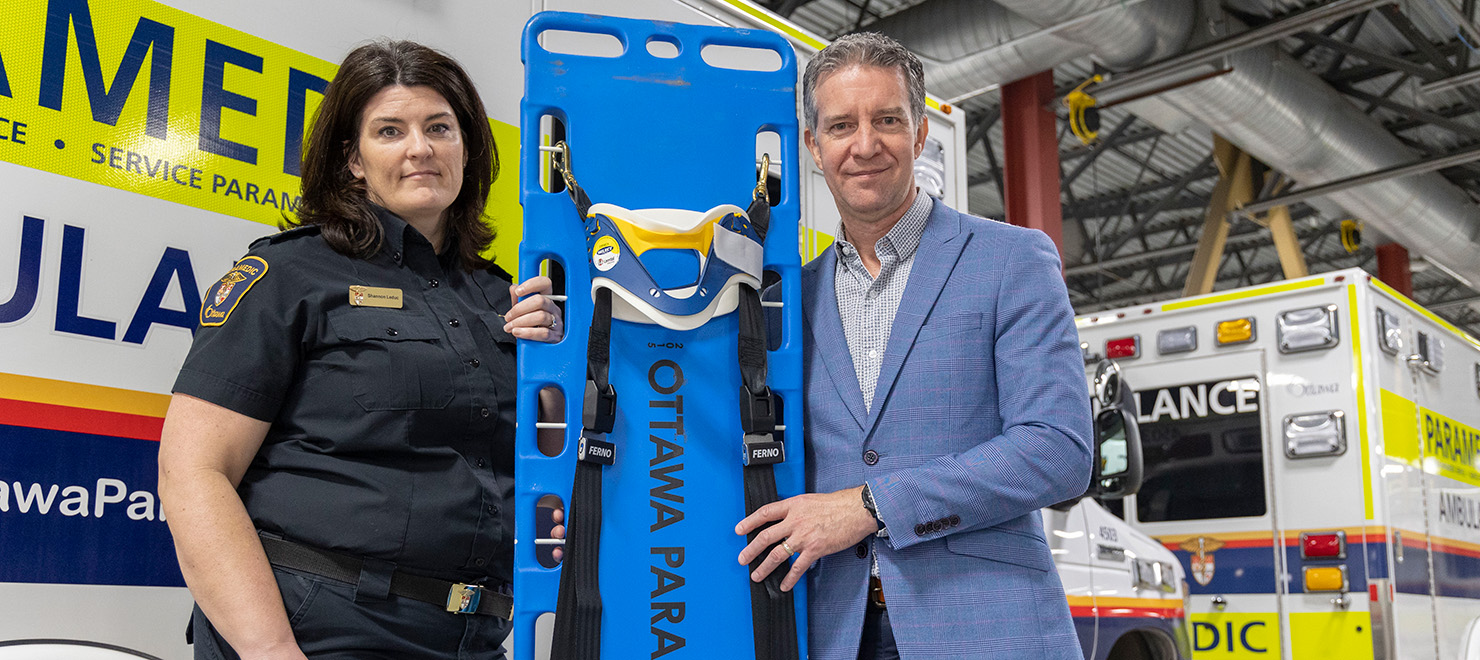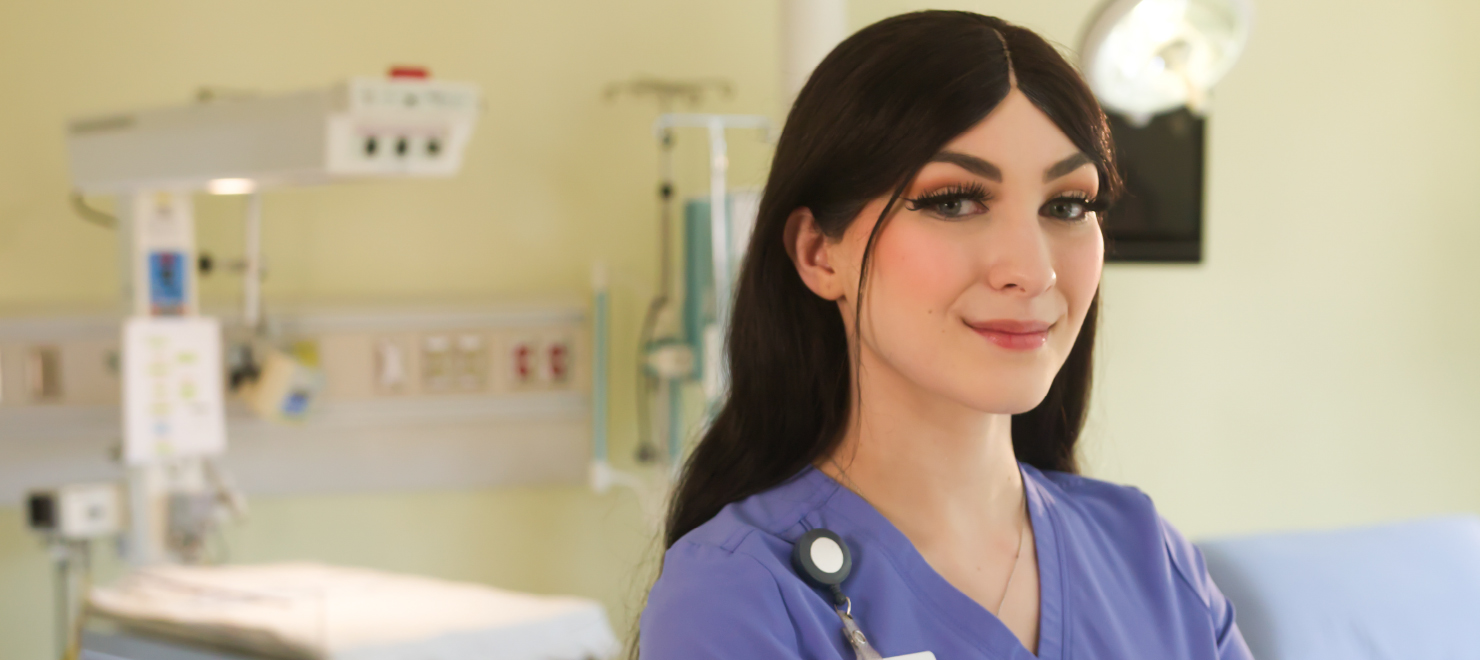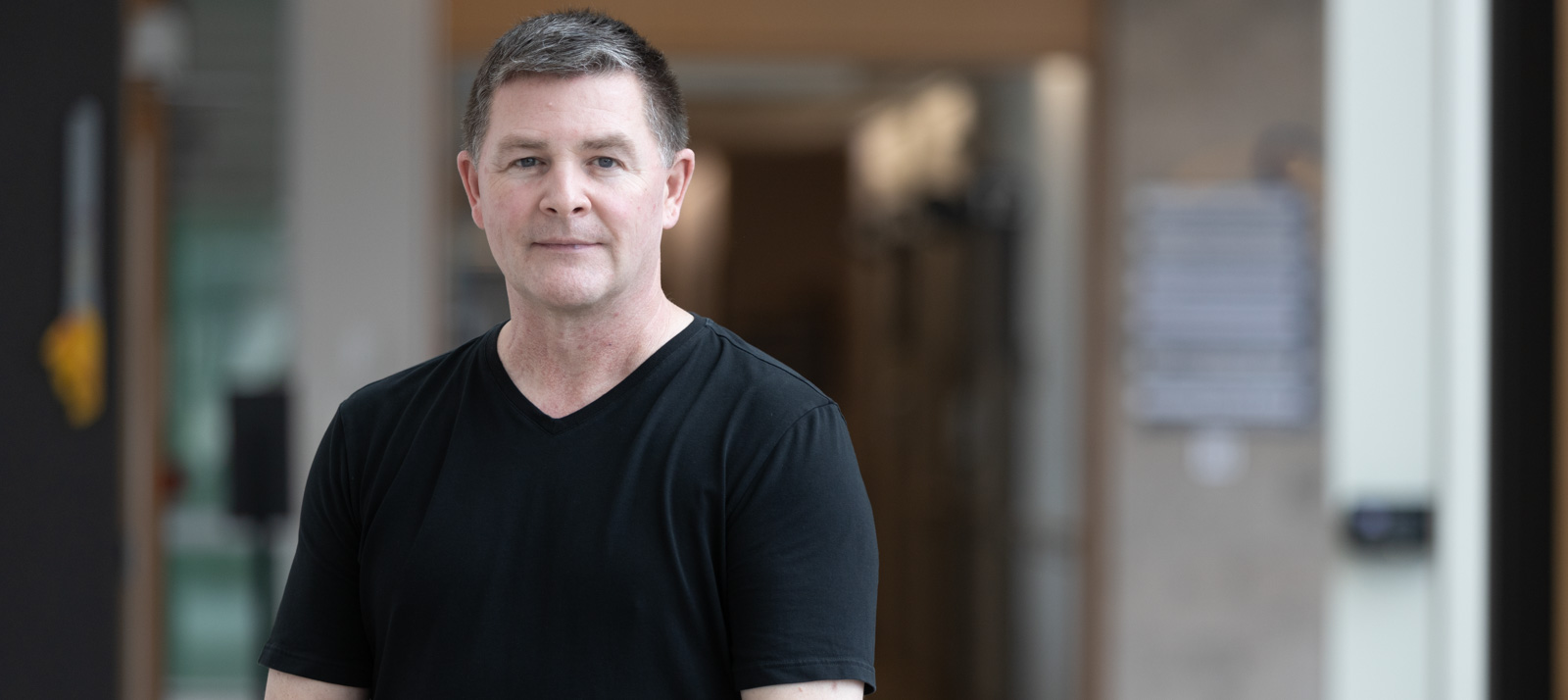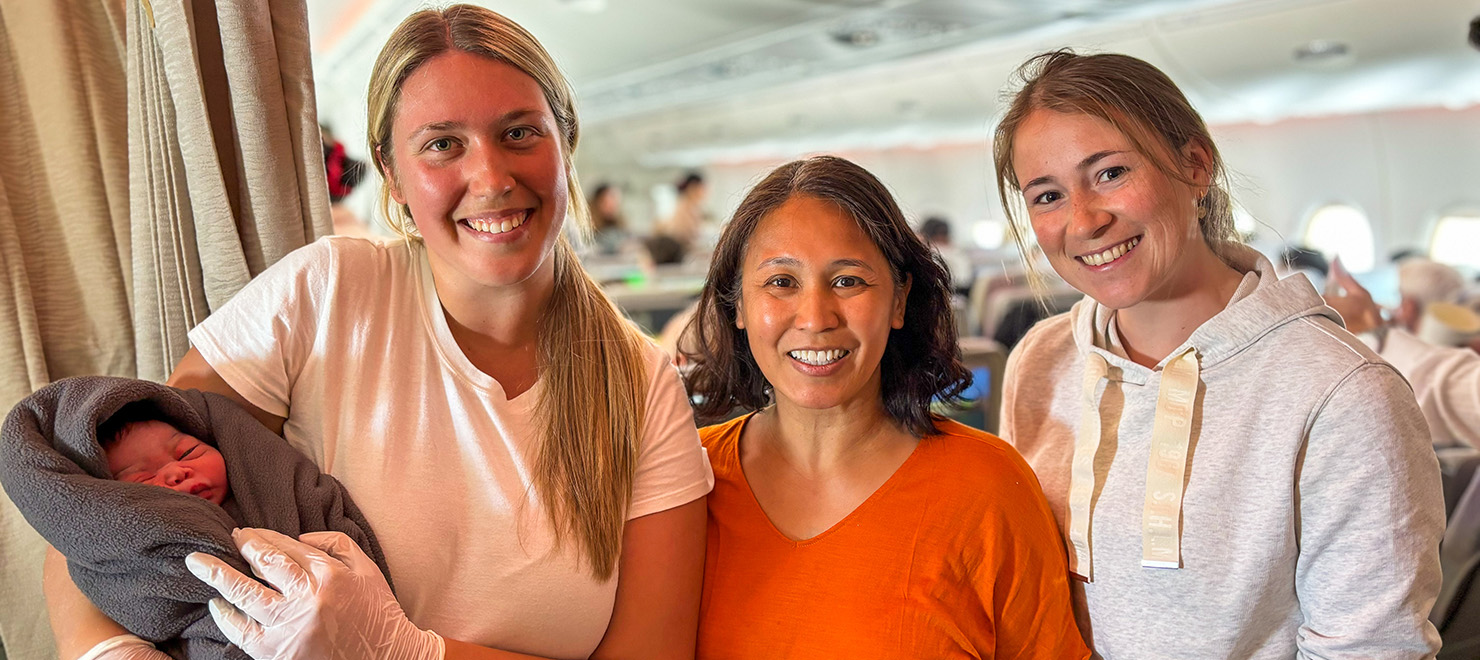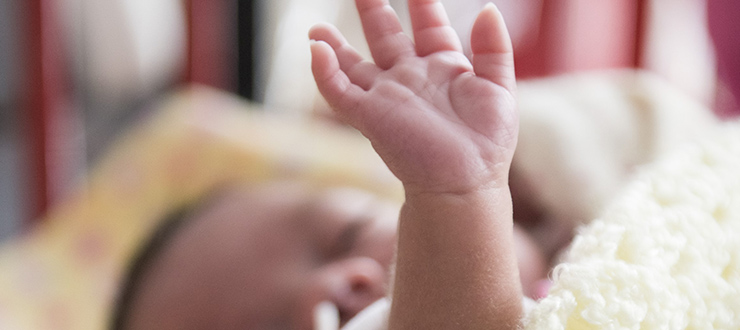
Researchers at The Ottawa Hospital have developed an algorithm that can accurately estimate a newborn’s gestational age to within one to two weeks.
Dr. Kumanan Wilson and his team have a novel approach to finding out how often babies are born preterm in low-resource countries. They’re using data collected from routine newborn blood tests and they’ve received nearly US $1 million from the Bill & Melinda Gates Foundation to support their research.
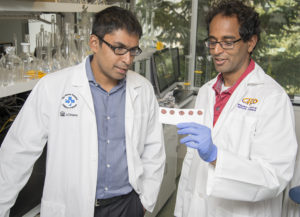
Dr. Kumanan Wilson (left) and Dr. Pranesh Chakraborty are using newborn blood tests to identify preterm children in low-resource countries
Preterm birth is a leading cause of death among children under age five. Knowing how often babies are born preterm is essential for developing and evaluating health programs and policies. However, many low-resource countries do not have reliable data on this issue.
Dr. Wilson and Dr. Steven Hawken are pioneering a solution for measuring preterm birth rates using newborn blood samples spotted onto paper. In Canada and other countries, this practice is routinely used to screen for genetic diseases and metabolic disorders, but using it to assess preterm birth is new. Using these blood spots and big data analysis, the team has developed an algorithm that can accurately estimate gestational age to within one to two weeks.
“We’re using metabolic fingerprints – unique patterns in specific molecules found in the blood – to help estimate gestational age,” said Dr. Wilson, an internal medicine specialist and senior scientist at The Ottawa Hospital and professor at the University of Ottawa. “If it works, this could be crucial to global efforts to reduce preterm birth and improve newborn health.”

Dr. Wilson’s team originally developed the algorithm and tested its accuracy using data from Ontario newborns. The team is currently testing the algorithm using newborn data from Bangladesh, Zambia, China and the Philippines.
This new funding from the Bill & Melinda Gates Foundation will allow the investigators to pilot the algorithm in Sub-Saharan Africa and South Asia and provide preterm birth estimates to the countries that are taking part. Families that participate in the project will also have access to screening for treatable genetic disorders. The Children’s Hospital of Eastern Ontario, Newborn Screening Ontario and Stanford University are collaborators on the project.
Dr. Wilson leads The Ottawa Hospital’s mHealth Lab, which is supported by donations to The Ottawa Hospital.

Support patient care and research at
The Ottawa Hospital
You might also like…
Do you have a surgery coming up? Here are five “prehab” tips to help you recover faster
You’ve probably heard about rehabilitation, but what about “prehabilitation”? Prehab is all about getting your body and mind in top shape before surgery so you can enjoy a smoother, quicker recovery. Discover five essential prehab strategies from researcher Dr. Daniel McIsaac.
By thinking differently, this research team is improving the lives of people with cancer
Taking a different approach to clinical trials, the REthinking Clinical Trials (REaCT) program aims to answer some of the most important and practical questions that affect both patients with cancer and our health-care system. Find out what sets REaCT apart and makes the program so special to participants like Beth.
Does this backboard look comfortable to you?
Imagine this: You’re flat on your back, strapped tight to a rigid backboard, unable to move at all. Fortunately, this is no longer the reality for most low-risk trauma patients when they’re brought to hospital in our province. Find out how researchers at The Ottawa Hospital teamed up with paramedics across Ontario to make the journey a lot more comfortable.
Caring for your newborn and yourself: A post-birth guide for parents
Have you just given birth? Are you expecting soon? In this series of videos, Registered Nurse Samantha Adams shares essential advice for those early days at home.
Ever have a tough time making a medical decision? These tools can help you
When faced with a medical condition, there may not be one clear path forward — but we have something to help you with that. The Ottawa Hospital is home to the largest collection of decision aids in the world, covering everything from various cancers to depression to allergies.
Baby on board: Nurses jump into action to help deliver baby during flight
When a woman went into labour in the middle of a seven-hour flight, Eunice and Lindsey immediately volunteered their services. The two neonatal intensive care nurses had to rely on their experience — and a little improvisation — to help deliver and resuscitate a baby girl.


 To reset, hold the Ctrl key, then press 0.
To reset, hold the Ctrl key, then press 0.
